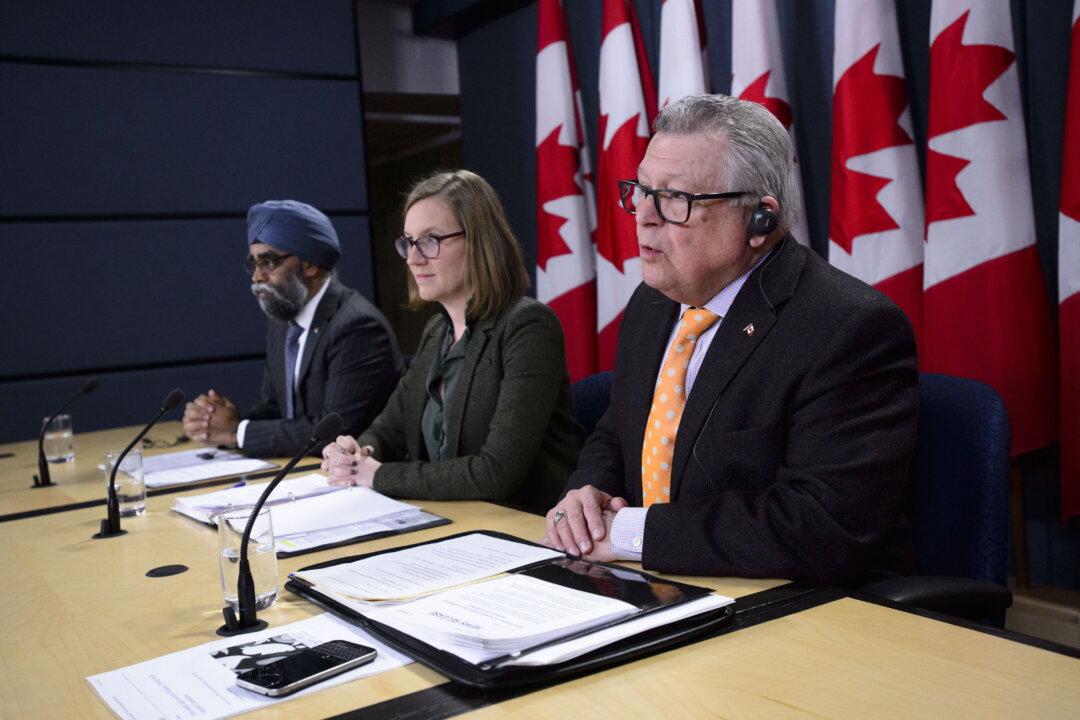Thwarting foreign interference in elections to protect democracy is extremely challenging due to the insidious nature of the perpetrators and their attacks. It’s not unlike an act of war that demands a coordinated international response, with more emphasis shifting to cyber and offensive strategies, according to an expert panel.
Tackling cyber threats is a team sport, said Sean Roche, a former director for digital innovation at the Central Intelligence Agency in Washington, D.C.
“At what point do we consider this an attack that would be in the same parlance of a conventional attack?” he asked, adding that “I think that will help frame the discussion.”
Roche was a panellist at “Access Denied: The Art of Fighting Back Foreign Electoral Interference,” a web event co-hosted by the Conference of Defence Associations Institute (CDAI) and the EU delegation to Canada on Oct. 29.
There was broad agreement that countries can’t be complacent and limit their response to just defending themselves. They need to go on the offensive but can also minimize damage to themselves with greater awareness and understanding of the issues.
Defence analysts often refer to the threats coming from so-called hybrid actors—parties that generate diverse threats, including conventional military threats as well non-military threats, such as cyberattacks, economic pressure, and disinformation campaigns. Those hybrid threats could come from both state and non-state parties.
Hybrid actors don’t act in the open, which makes attributing crimes to them difficult. Their attacks are below the threshold that would require a response of conventional force, and are sometimes even below the threshold of recognition, said panellist Johann Schmidt, a director at the European Center of Excellence for Countering Hybrid Threats in Helsinki, Finland.
“As long as a hybrid actor is able to put some kind of fog around his activities, it’s already a part of the success, because it’s at least delaying or hampering the decision-making process of the victim, but also of the international arena and alliances,” he said.
Coordinated Fight-Back
Roche said that “we need to have robust sharing with our partners, it has to move at speed.”
Schmidt noted that NATO’s Article V, which discusses collective defence—the principle that says an attack against one member is an attack against all members—“is as relevant as it ever was.” It was invoked for the first time in NATO’s history after the 9/11 attacks against the United States.
Digital networks are essentially battlefields, and cyber can’t be thought of in isolation from diplomatic and military conflict, said moderator Richard Fadden. Fadden is a former director of the Canadian Security Intelligence Service (CSIS) and national security adviser to prime ministers Stephen Harper and Justin Trudeau.
While China and Russia are predominantly singled out as the primary state-sponsored cyber criminals in the world, how the authorities fight back can raise legal and ethical considerations.
Fadden said it’s important not to just respond with a like-for-like cyberattack.
“We can’t get into a world where we are violating norms, because then we are not the democracies that we are trying to defend,” he said.
Heli Tiirmaa-Klaar, Estonia’s ambassador for cyber diplomacy, said at the webinar that, to be most effective, countries must jointly use sanctions against the perpetrators. Sanctions could involve freezing assets, adding perpetrators to non-entry lists, or banning entities from doing business.





